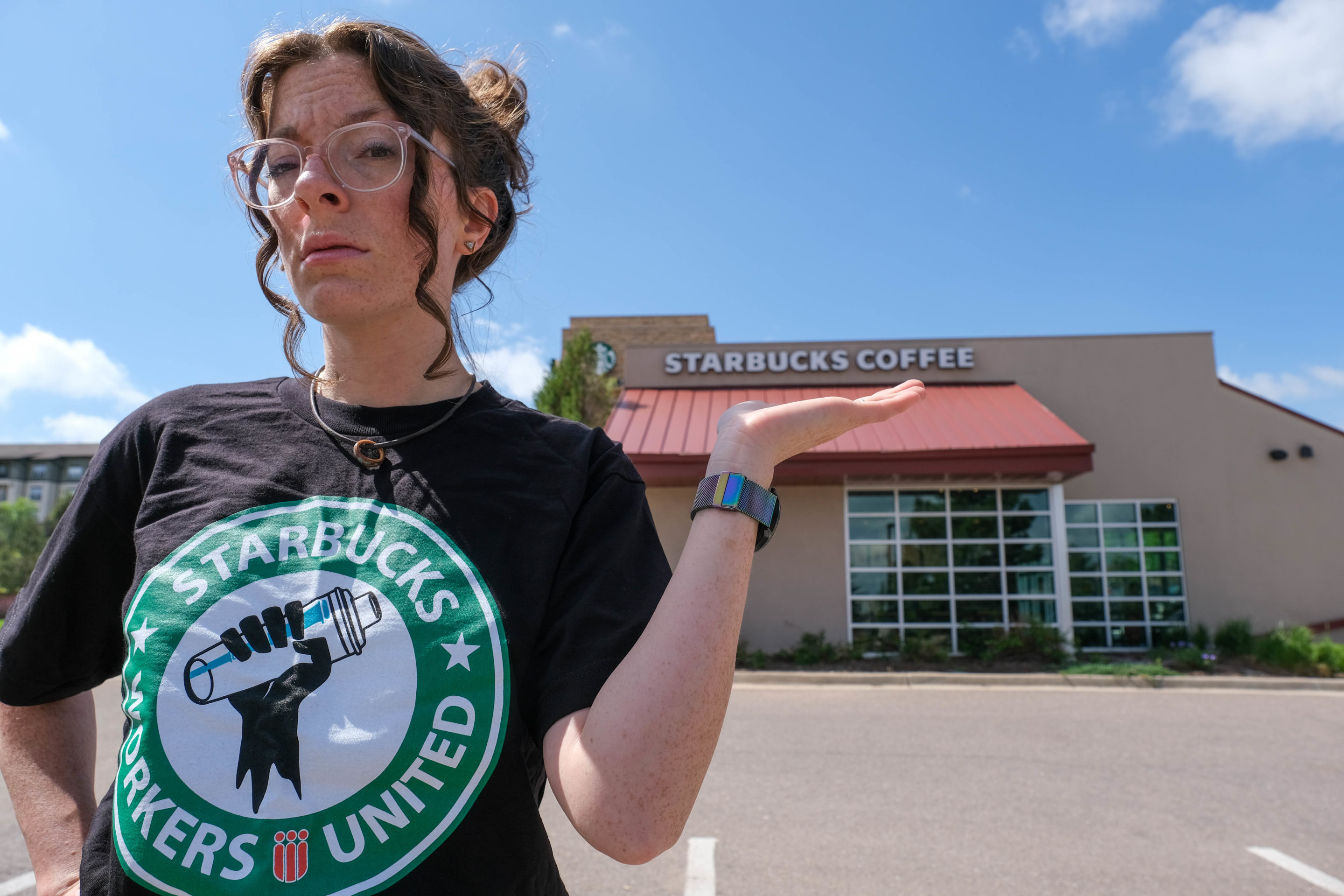//Kara Armstrong stands in front of a display inside her storefront, The Conscious Merchant on Jan. 7. Photo by Esteban Fernandez | [email protected]
The average American looks for cost and convenience. After working 9 to 5, Monday through Friday, many can’t get to a refill store or simply don’t have the bandwidth to find greener solutions. In fact, 78% of consumers say they value convenience more now than they did before the pandemic.
Big-box stores push what customers currently desire, and it’s not cheap or easy for corporations to change their business models and go green. Although 90% of executives think sustainability is important, only 60% of companies have a sustainability strategy. Companies push low-cost, disposable products, refusing consumers the time and space to practice sustainability.
“We are constantly pitting personal responsibility and corporate responsibility against each other,” said Kara Armstrong, founder of the zero-waste store The Conscious Merchant. To her, it’s more of a two-way street that calls for change on both fronts.
This is a struggle that Armstrong is hoping to overcome one customer at a time. The idea for The Conscious Merchant developed from Armstrong’s master’s degree in public health and longtime passion for green, sustainable living.
“I was in clinical research working with the FDA closely for years and started looking at my environment, realizing how much stuff wasn’t regulated,” Armstrong said. “That just did not sit well with me.”
After much education, research and promotion, Armstrong was offered the use of a space to bring her project to fruition. The zero-waste concept store launched in 2018 as a pop-up in Denver, a temporary home while Armstrong awaited the availability of a more permanent location.
The shop carries a plethora of merchandise, from eco-friendly bath products and reusable kitchenware, to ethically sourced and made home goods. Before they’re made available to customers, Armstrong vets all the products to make sure they perform well. Customers can refill any container they bring in with cleaning and body care products that are available for purchase by the ounce. They also offer alternatives to single-use plastics, like Armstrong’s best-selling Food Huggers.
More than your average zero-waste store, however, Armstrong works with her customers to find a more personalized solution. The Conscious Merchant is also a place to ask questions and explore options.
Armstong said she’s heard too many people say they bought something promoted by an influencer online that didn’t work, ultimately leaving them discouraged about pursuing sustainable products in the future. She designed The Conscious Merchant so that customers could touch, see and experience things, and decide which products will launch their green journey.
“The thing about zero-waste or sustainability is that it shouldn’t be done in a day; it can’t be done in a day,” Armstrong said.
That’s why she aims to target the behavior, not the product. Armstrong’s goal is to help people figure out what makes sense and what doesn’t for their lives. She sees how many Americans will buy something, find it doesn’t work and then retire it to a drawer where it serves no purpose. By focusing on purchasing behaviors, consumers can avoid accumulating more junk in the process of trying to be less wasteful.
Armstrong’s concept works to expand that bandwidth for people who prioritize cost and convenience. At the same time, she recognizes that, while people will need to shift their mindsets and take on some personal responsibility, corporate responsibility is sorely lacking. Corporations don’t want to go up against cost and convenience; they don’t want to establish a sustainability department that works toward change.
Fortunately, it seems the positive attitude toward eco-friendly living is on an upward trajectory: 66% of consumers say they would spend more money on a product if it came from a sustainable brand, and 81% of global consumers feel that companies should help improve the environment.
A mindset shift of the mainstream population could lead to an economic shift that benefits everyone, even corporations. McKinsey Sustainability estimated that reducing a business’ resource costs could improve their operating profits by up to 60%. Though a mainstream movement could propel a change in legislation, that doesn’t negate the opportunities that lie within the household.
Armstrong understands the difficulty for the consumer to see that using something for longer instead of replacing it is, in fact, cost-saving, especially when it doesn’t feel like it looking at the price tag. Take a $5.99 box of Ziploc sandwich bags versus an $11.99 reusable sandwich bag, for example. “It’s time to realize that if you want this to change, you’re going to have to step up,” she said.
After three years of semi-permanent locations in downtown Denver, the East Colfax neighborhood and Louisville, The Conscious Merchant is transitioning back to pop-ups and online in 2022. Armstrong plans to collaborate with other local retailers, as well as teaming up with dedicated past clients for selling parties in people’s homes.
“I can reach more people by being in different places,” Armstrong said. Though she knows going green can be financially, mentally and physically overwhelming, Armstrong believes that by continuing to give access and provide education, she can continue to build empowerment around clean and zero-waste living.
Enjoyed this story? Help us keep the lights on! Supporting local press ensures the stories you want to read keep coming, become a member for free today! Click here.





0 Comments